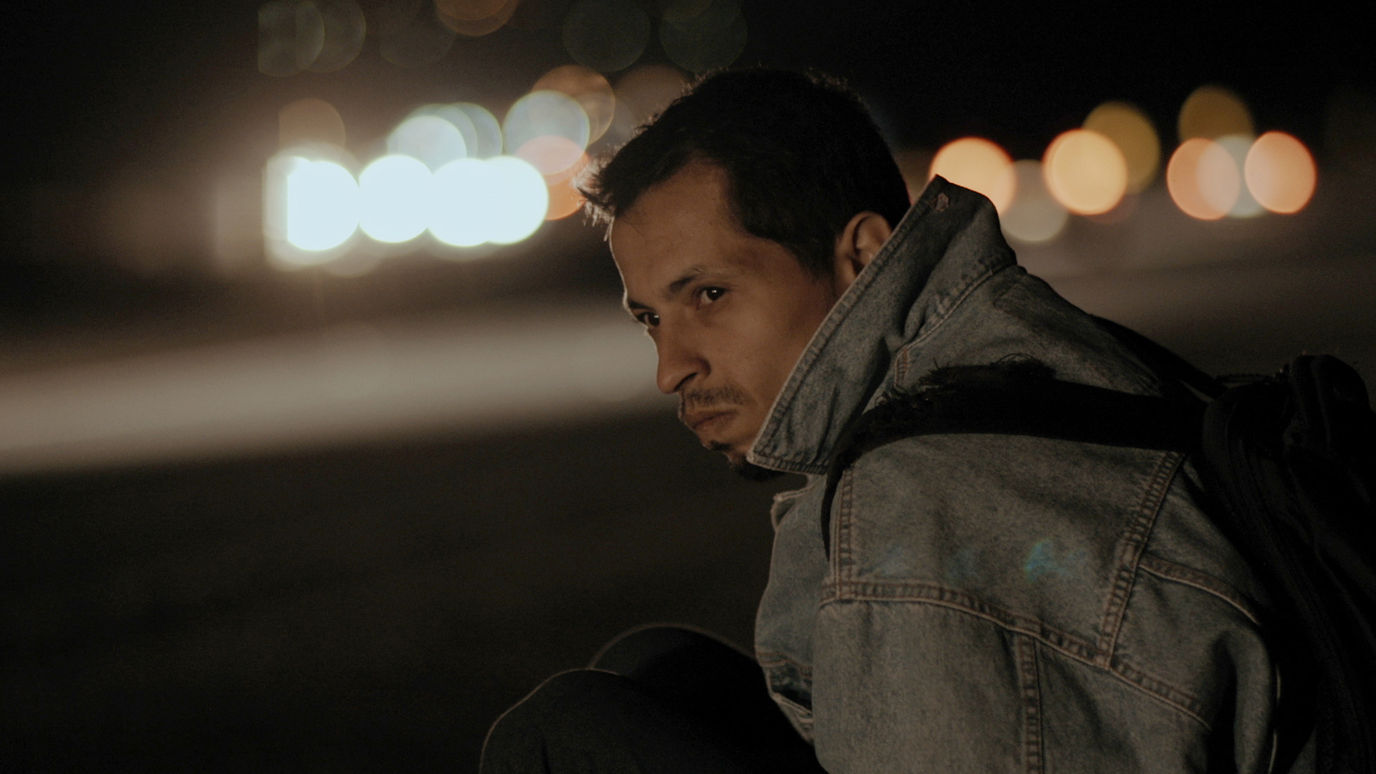Tiger #7: Arábia - Affonso Uchoa & João Dumans
-
Arabia by Affonso Uchôa and João Dumans is a journey through contemporary Brazil’s contradictions. An up-and-coming country with increasing prosperity, but also a country bending till it breaks due to the self-same economic progress. This is the joint product of a practician and a theoretician who nevertheless have a great deal in common.
By: Sophie van Leeuwen & Pieter-Bas van Wiechen
Two filmmakers jointly directing a film seems complex and time-consuming, and it is. As soon as the pair appear on screen opposite me, I gain live insight into their mutual creative process: after every question, Dumans and Uchôa briefly confer in Portuguese about their answer and who will provide it.
"This is also how we directed the film together," explains Dumans. "Every time a question or decision cropped up, for instance whether a T-shirt should be red or blue, we withdrew briefly to consult. That was difficult for the people we made the film with." Uchôa adds that the endless consultation and deliberation made the film better. "It's intense always sharing your ideas and thoughts, but we dreamt up the film together. That’s why we had to make it together."
Driver and university
The two makers have a lot in common, but the differences are marked too. Uchôa grew up in a poor Brazilian neighbourhood. His father was a truck driver and his mother worked in a sweatshop. He bootstrapped himself, ultimately studying at university, a hell of a feat. Dumans’ parents were both university lecturers and it was logical that he would attend too. His perspective was global from the start: when he was 15 he even spent a year living in Loenen aan de Vecht in the Netherlands as an exchange student. His first job? Curator at an arthouse cinema.
"Affonso is really from that part of society, his previous film which I helped him with as a writer and editor was literally filmed in his own neighbourhood," clarifies Dumans. "He really works from that background, while I view the film from considerable distance as a critical academic." Those are the differences. "We ask ourselves a lot of questions about our backgrounds and which roles they play. Ultimately, both of us want to continue to work in cinema, artistically we want the same and we do so in the same manner. To us, literature provides the foundations, both literally and as a source of inspiration."
Tough life
The tough social reality facing many (day) labourers in Brazil is omnipresent in the film. The lead André travels the immense country going from one uncomfortable job to the next. Itinerant, temporary labourers are a given in Brazil.
"It truly is a different world. People meet in various places and help each other get another job," explains Dumans. "Some have been away from home for over five years. They travel around, returning home now and again, to their mothers or even to their own spouses and children." It’s a very hard life, André has to work hard and faces regular disappointments. He is paid poorly or not at all, has to do incredibly arduous work and ends up in prison. But it isn’t a militantly political film, Dumans and Uchôa keep emphasizing. "It's not a documentary, nor is it a 'pamphlet'," says Uchôa.
Great characters
Uchôa and Dumans wrote the film around the lead. "His character had to be good and he subsequently ends up in a variety of situations," explains Uchôa. "What he experiences is sometimes due to the system, sometimes all his own fault. He makes his own choices and tells his own story. That’s also why the two decided to have André read from his diary."
"It's a literary narrative whereby we put the pen in the labourer’s hands. Sometimes he provides casual social commentary, but that isn’t the core of the film. What we wanted most was a strong character. Look at westerns, they are full of these great characters. Why shouldn’t we have them in our films?"
In the film André is played by Murilio Caliari, not a professional actor, but one of the guys Uchôa grew up with. "We worked with him on our previous film A Vizinhança do Tigre and he was already on our mind when we started making this one," says Dumans. "He was really important to us for the making of this film because he introduces so much reality. Caliari has also held countless jobs. Our film almost couldn’t be shot because he’d been jailed. He also wrote his life story down for us, but we didn’t use it. He was however usually right if something lacked veracity in the story or text."
João Dumans is looking forward to his trip to the Netherlands, both because of the film festival, but also because he lived here briefly. "The last time I was here was in 2002 and I once spoke pretty okay Dutch which I learnt at school in Hilversum. I hope I can meet up with friends from back then!"











